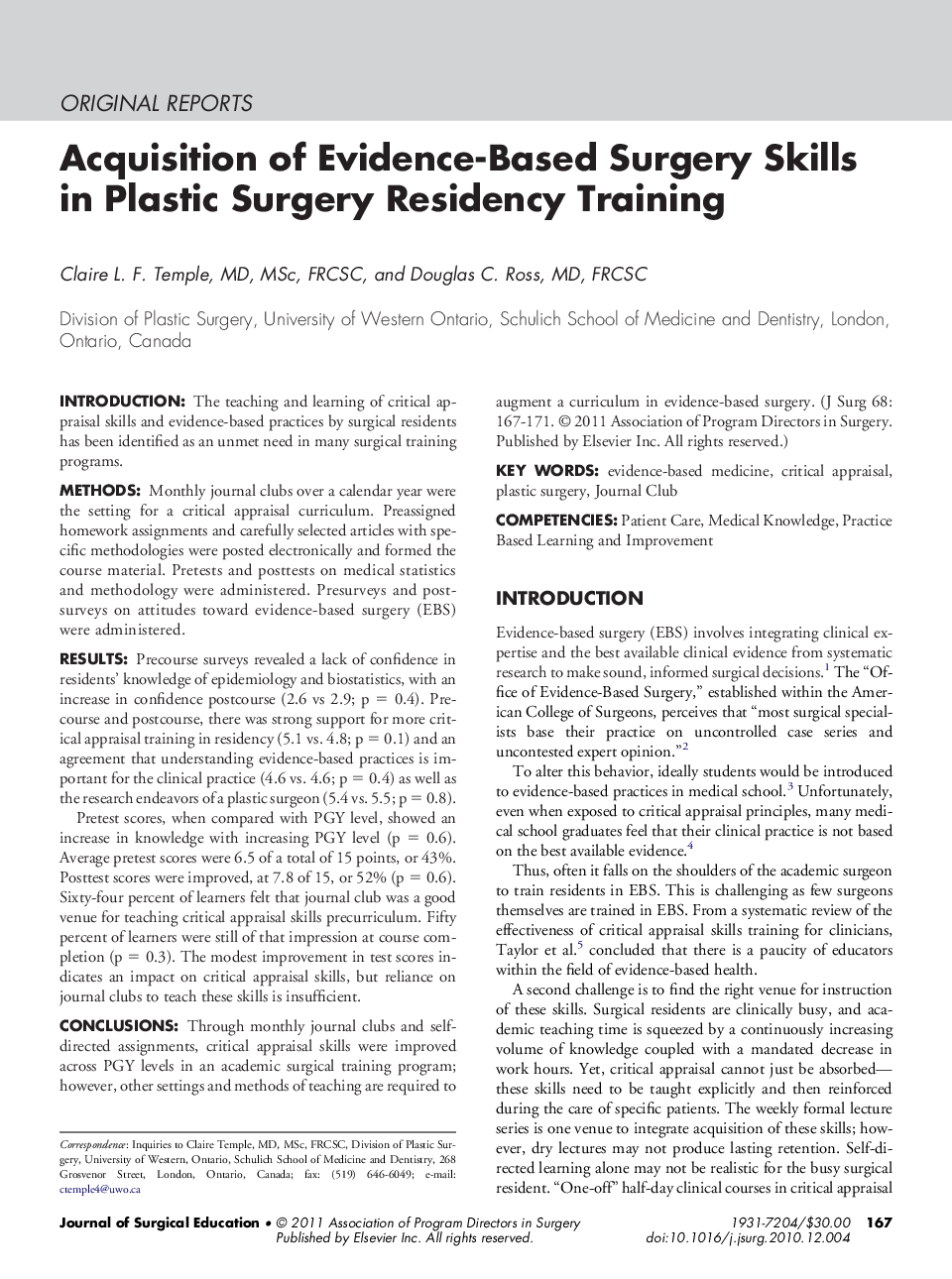| Article ID | Journal | Published Year | Pages | File Type |
|---|---|---|---|---|
| 4298384 | Journal of Surgical Education | 2011 | 5 Pages |
IntroductionThe teaching and learning of critical appraisal skills and evidence-based practices by surgical residents has been identified as an unmet need in many surgical training programs.MethodsMonthly journal clubs over a calendar year were the setting for a critical appraisal curriculum. Preassigned homework assignments and carefully selected articles with specific methodologies were posted electronically and formed the course material. Pretests and posttests on medical statistics and methodology were administered. Presurveys and postsurveys on attitudes toward evidence-based surgery (EBS) were administered.ResultsPrecourse surveys revealed a lack of confidence in residents' knowledge of epidemiology and biostatistics, with an increase in confidence postcourse (2.6 vs 2.9; p = 0.4). Precourse and postcourse, there was strong support for more critical appraisal training in residency (5.1 vs. 4.8; p = 0.1) and an agreement that understanding evidence-based practices is important for the clinical practice (4.6 vs. 4.6; p = 0.4) as well as the research endeavors of a plastic surgeon (5.4 vs. 5.5; p = 0.8).Pretest scores, when compared with PGY level, showed an increase in knowledge with increasing PGY level (p = 0.6). Average pretest scores were 6.5 of a total of 15 points, or 43%. Posttest scores were improved, at 7.8 of 15, or 52% (p = 0.6). Sixty-four percent of learners felt that journal club was a good venue for teaching critical appraisal skills precurriculum. Fifty percent of learners were still of that impression at course completion (p = 0.3). The modest improvement in test scores indicates an impact on critical appraisal skills, but reliance on journal clubs to teach these skills is insufficient.ConclusionsThrough monthly journal clubs and self-directed assignments, critical appraisal skills were improved across PGY levels in an academic surgical training program; however, other settings and methods of teaching are required to augment a curriculum in evidence-based surgery.
